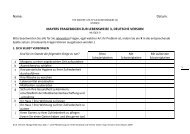Abstracts - York St John University
Abstracts - York St John University
Abstracts - York St John University
You also want an ePaper? Increase the reach of your titles
YUMPU automatically turns print PDFs into web optimized ePapers that Google loves.
written code as a score for vocalisation sounding.js will be performed live at the E-‐POETRY<br />
Festival 2013 and attempts to speak a nonverbal language through rehearsed and recited<br />
sounds-‐as-‐language. Influenced by F.T. Marinetti's concept of 'words in freedom' and 'the<br />
destruction of syntax', <strong>St</strong>eve McCaffery's 'Voice in Extremis', and Christian Bök's Cyborg<br />
Opera, the performance and its construction explores the materiality of electronic<br />
textuality as sound poetry.<br />
Invented in 1995, Javascript is part of the architectural framework of web browsing. The<br />
third level in what developers call 'The Separation of Concerns' which identifies HTML, css<br />
& Javascript to make possible the editing of a websites content, aesthetics and behaviour<br />
individually. Javascript is extra-‐textual, it is concerned with action, execution and cause.<br />
The 'separation of concerns' isolates the content from the behaviour, however, in this<br />
performance, the behaviour becomes the content, the code is executed as a sonic<br />
dysfunction. Attempting to bring the function and code of the computer to a visible and<br />
tangible aurality.<br />
Using Alan Golding's term 'transitional materialities', this paper will discuss the temporal<br />
and spatial textuality of new media poetics and how, by sounding the code, we can align<br />
digital writing practices with performance and sound poetry. Engaging in the theories of<br />
Giselle Beiguelman (2006), Rita Raley (2002) and what Ming-‐Qian Ma (2009) calls the<br />
'sound shape of the visual'.<br />
Nathan Walker is an artist and writer based in <strong>York</strong>. He is lecturer in Performance at <strong>York</strong><br />
<strong>St</strong> <strong>John</strong> <strong>University</strong> and co-‐founder of arts organisation O U I Performance with Victoria<br />
Gray. His practice transforms the event of writing into performance, video and collage and<br />
has been shown both nationally and internationally in galleries, festivals and theatre<br />
spaces. www.nathan-‐walker.co.uk<br />
Digital Oedipus: de-structuring the theatre of the subject<br />
Hannah Lammin (<strong>University</strong> of Greenwich/Birmingham Institute of Art and Design)<br />
<strong>St</strong>udio for Electronic Theatre has produced a series of digitally-‐enhanced performance<br />
works (ACT Oedipus, 2011; Oedipus - Code Breaker, 2013) re-‐imagining the Oedipus myth in<br />
a virtual-‐reality age. These works combine physical performance with audio-‐visual feed-‐<br />
back and augmented reality effects, with the aim of producing a new turn in the tradition of<br />
"total theatre" which transforms the experience of time and space, producing a non-‐<br />
representational experiential form.<br />
Using the performance pieces as a starting point, this paper will examine the figure of<br />
Oedipus as a mythological foundation – both to our understanding of theatre since<br />
Sophocles' work was taken as the epitome of tragedy in Aristotle's Poetics, and to modern<br />
conceptions of subjectivity, as rooted in Freudian psychoanalysis. I will argue that, by re-‐<br />
staging the ancient tale in a near-‐future telematic environment and highlighting the<br />
disjunctures between the virtualized hyper-‐reality of the digital age and the brutalities that<br />
persist in the mundane reality of crisis spaces such as the war zone or refugee camp, SET's<br />
work figures something of the instability and indeterminacy that constitutes the identity of<br />
Oedipus, who is both foreign and native to Thebes, both husband and son to Jocasta.<br />
Drawing on Lyotard's libidinal philosophy, which takes the structure of the theatre as the<br />
paradigmatic form of subjectivity, I will argue that the non-‐linear, synaesthetic experience<br />
of SET's Oedipus generates an intensity that opens onto the fluid surface space Lyotard<br />
names the “Great Ephemeral Skin”, thereby energetically de-‐structuring the theatrical<br />
architecture of the subject.<br />
17


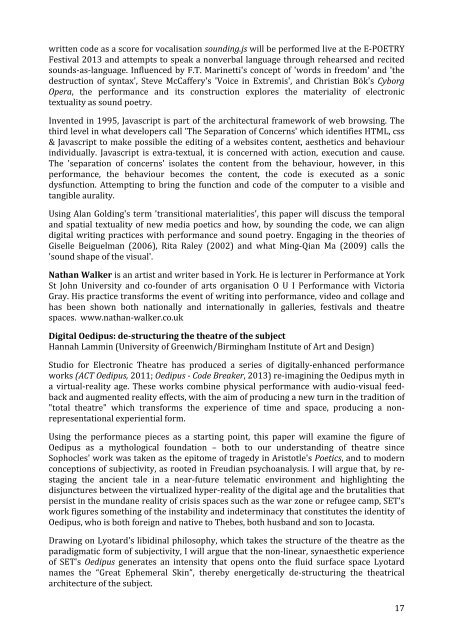
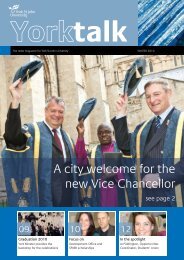






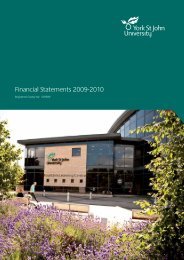



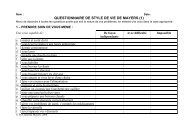
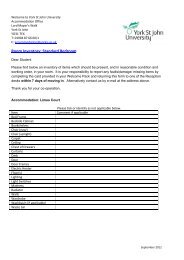
![â'Those [women] who feel strong and hope to find employment, a ...](https://img.yumpu.com/53506972/1/184x260/athose-women-who-feel-strong-and-hope-to-find-employment-a-.jpg?quality=85)
